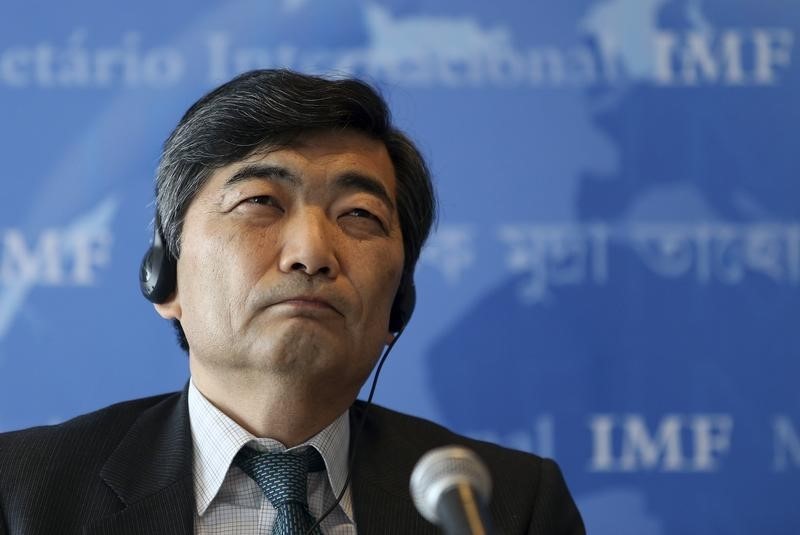By Tetsushi Kajimoto and Yuko Yoshikawa
TOKYO (Reuters) - The yen's fall against the dollar will not cause a "currency war" between Japan and the United States, as it stems from the two nations' diverging monetary policies, a former top official of the International Monetary Fund and Japan's Finance Ministry said.
Naoyuki Shinohara, an IMF deputy chief until last month and Japan's top currency diplomat before that, said on Wednesday he had not heard much concern from the U.S. administration over the yen's decline, even as the Japanese currency hovers near eight-year lows to the dollar.
The dollar rose last week above 122 yen
The weaker yen "won't be a big problem as it stems from different positions on monetary policy," Shinohara, vice finance minister for international affairs from 2007 to 2009, told Reuters. "It would be a different story if (Japan) were to intervene to target currencies."
He added, "It won't lead to the kind of currency war that was seen in the past," referring to friction between the two countries decades ago, when critics accused Japan of huge yen-selling market interventions to weaken its currency and benefit exporters.
The yen's fall has delivered hefty profits to Japanese exporters by making their products more competitive, but it has also boosted the cost of imports.
Japanese officials, who initially welcomed the yen's fall after Prime Minister Shinzo Abe took office in December 2012 and adopted loose monetary and fiscal policies, have recently been noting the problems as well.
Shinohara said a weaker yen was positive for the overall economy, but policymakers needed to watch effects on individual industries.
He predicted the Fed would not raise rates until the autumn or later, and that further dollar gains would stir more concerns about volatile emerging markets rather than yen impact.
Japan may not see inflation reach the central bank's target of 2 percent until after 2017, but there is no need for it to expand monetary stimulus now, he said.
The BOJ should not stick to its two-year timeframe for achieving 2 percent inflation but treat it as a medium-term target, Shinohara said.

"Markets won't be convinced just by setting 2 percent inflation as a sacrosanct goal and pledging to do whatever it takes," he added. "To make markets believe what you say, you have to set a goal that looks feasible from the markets' perspective."